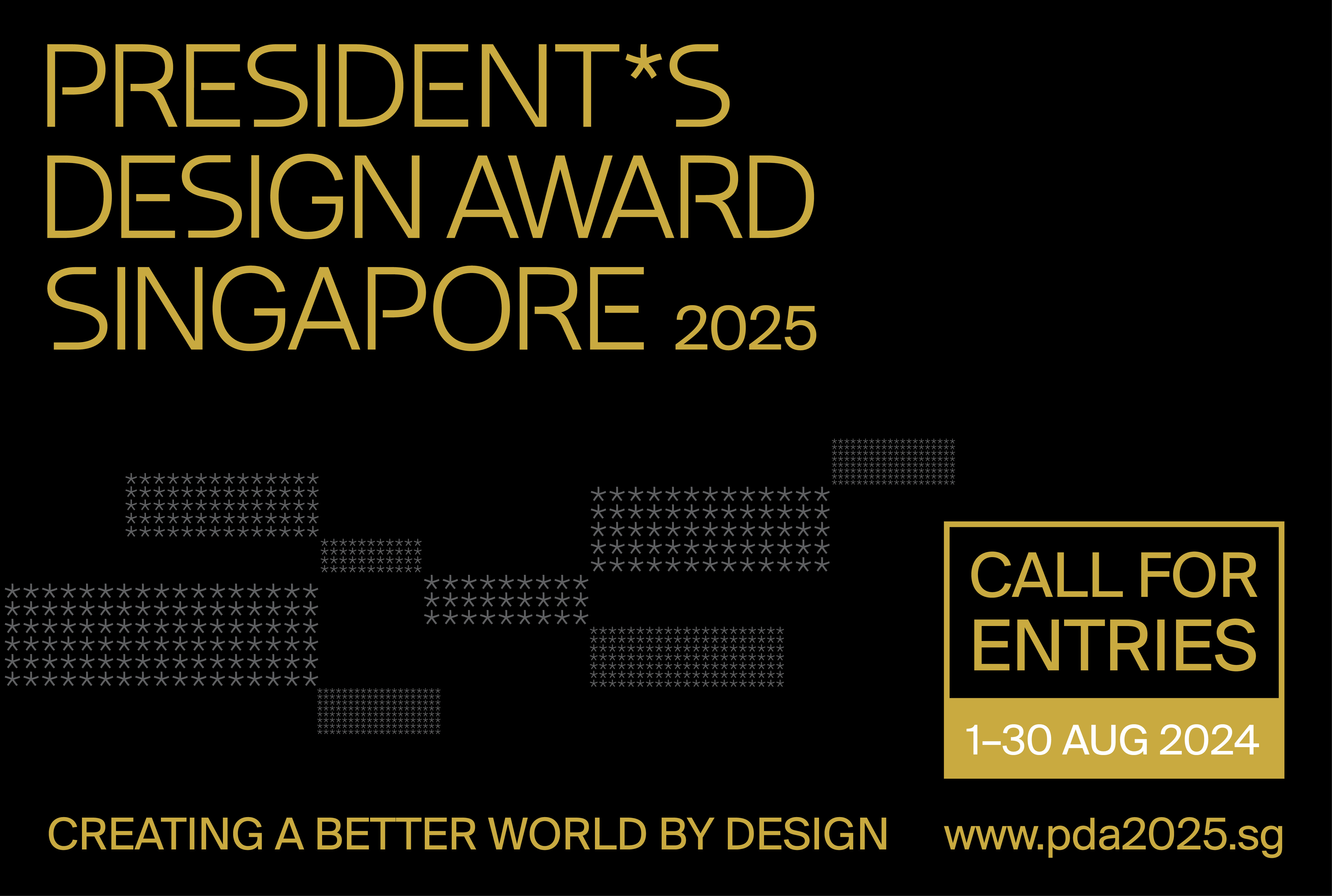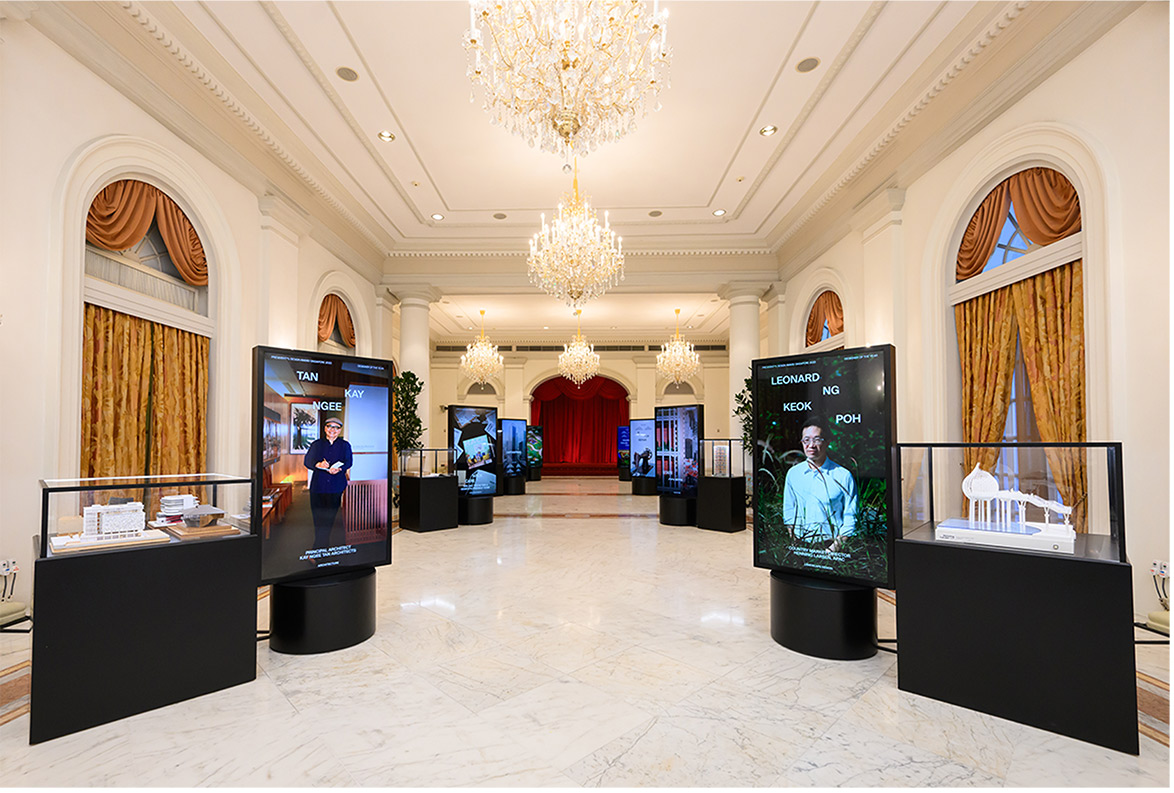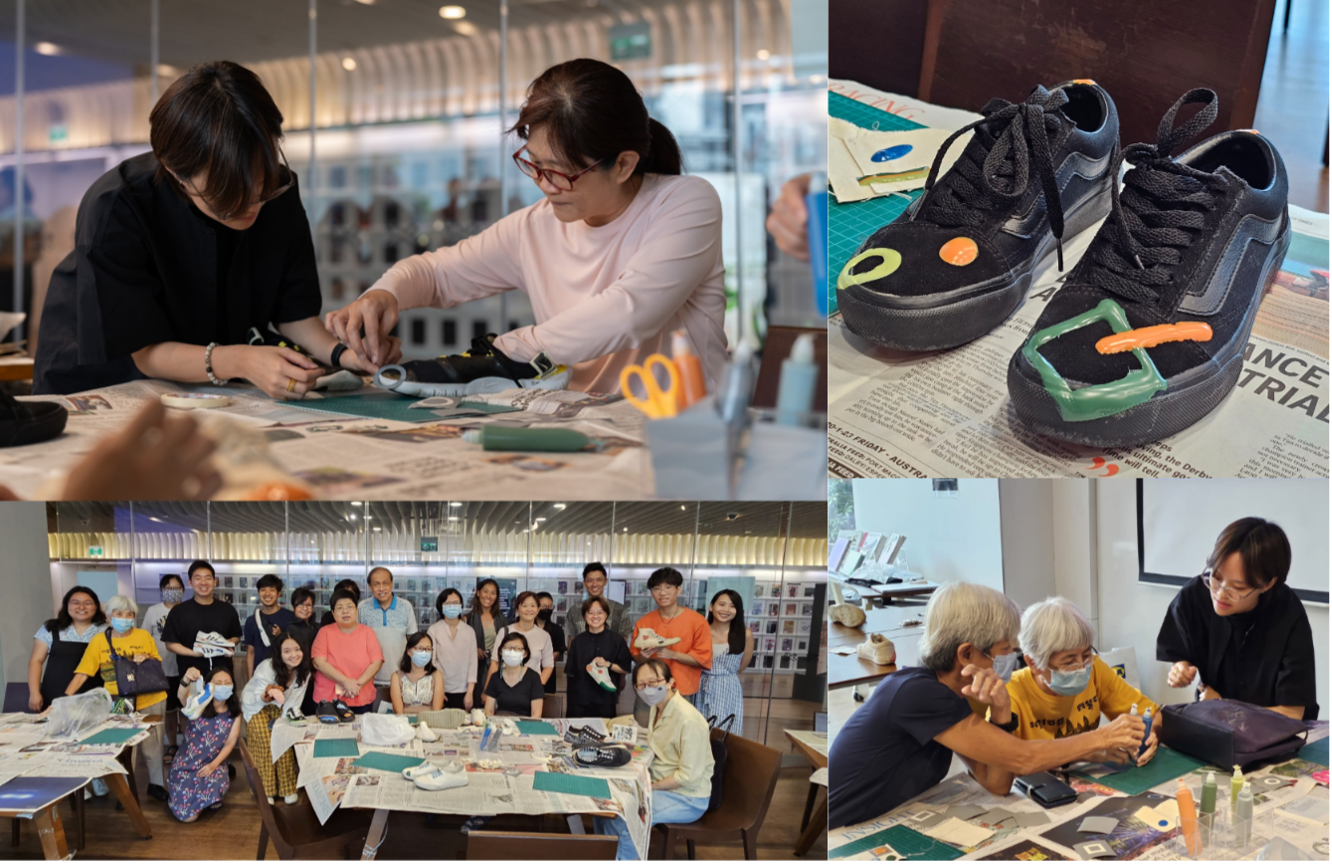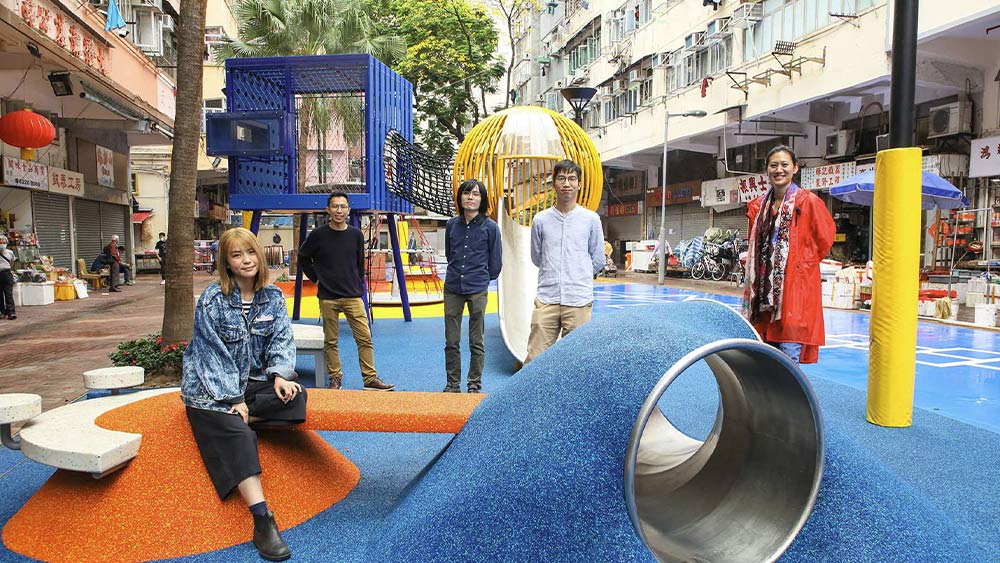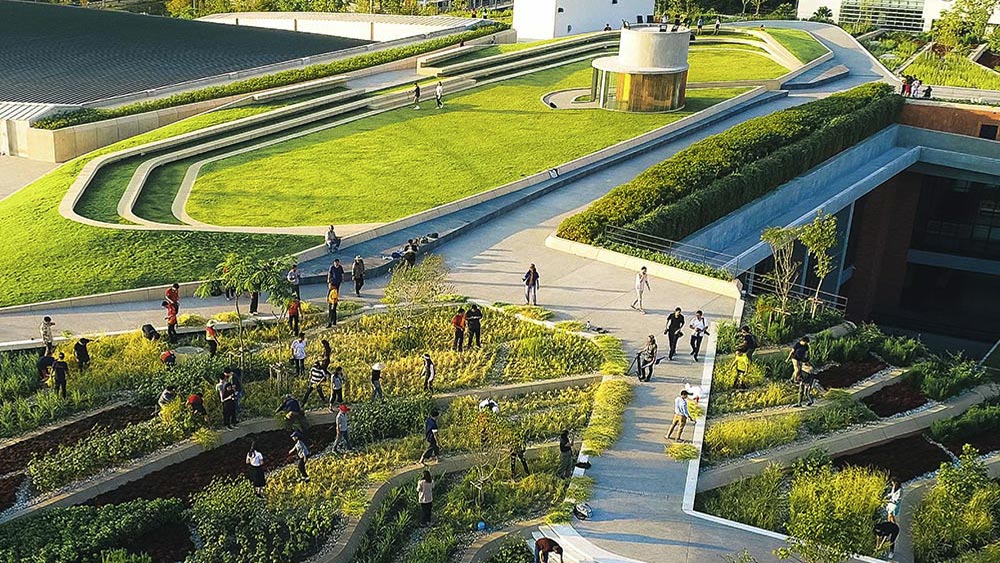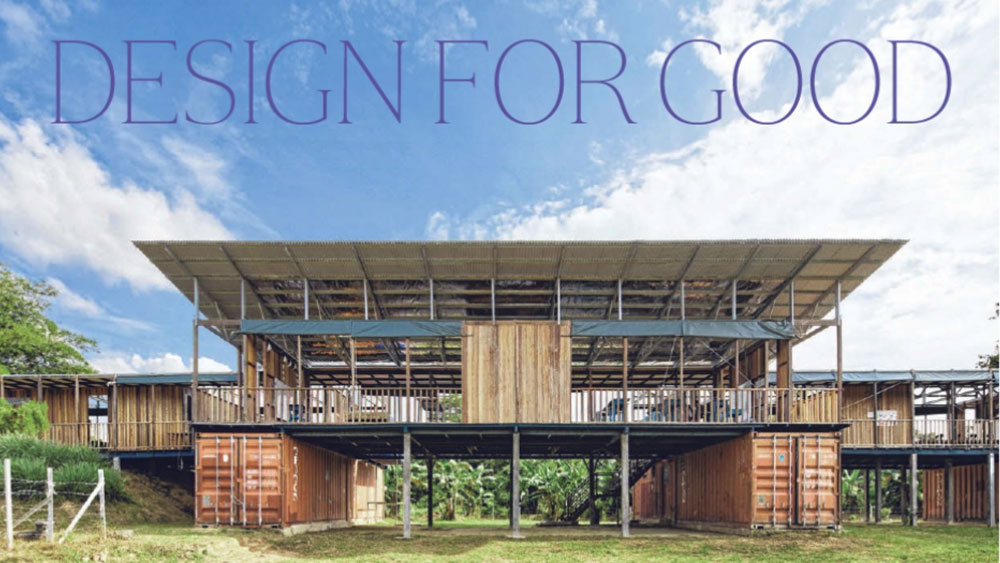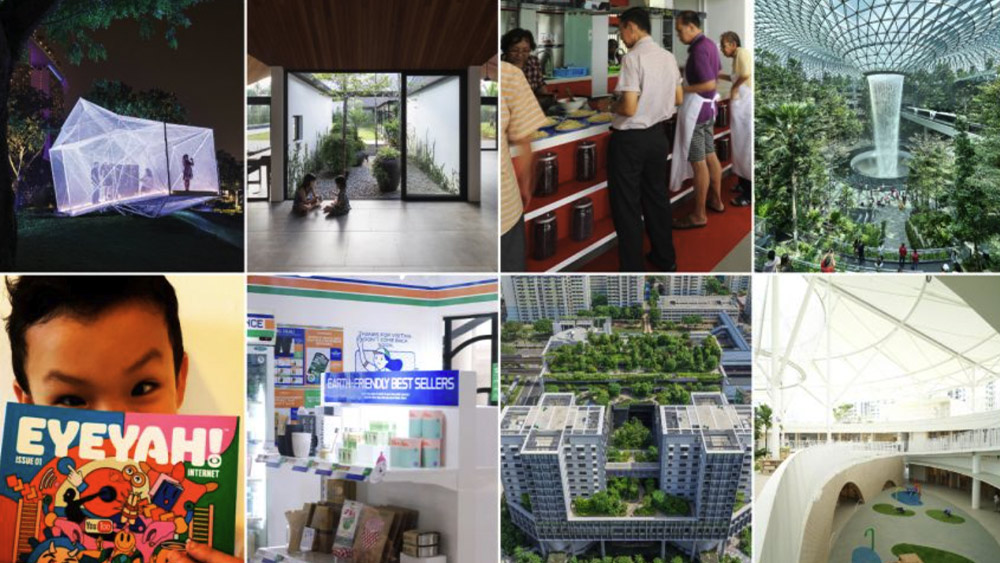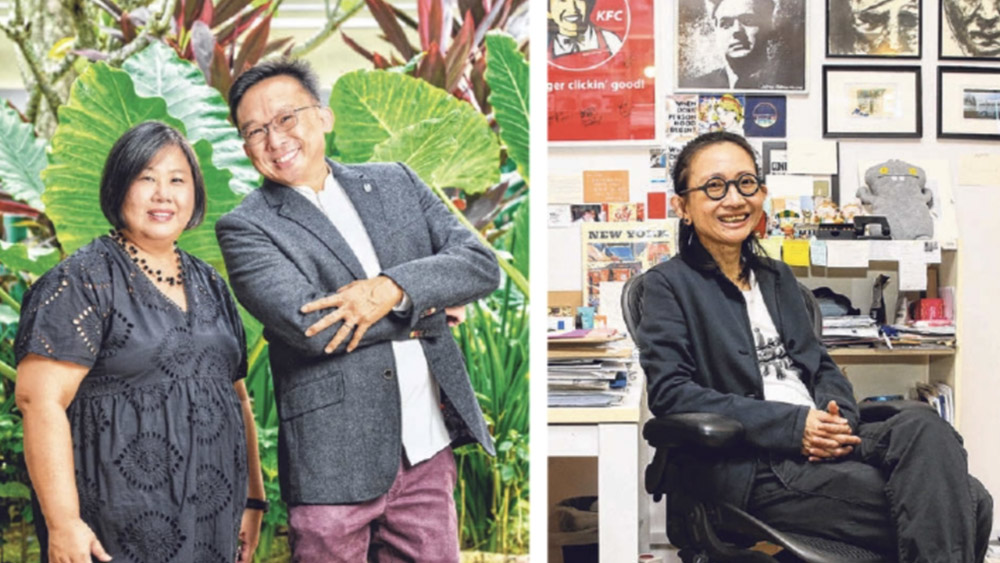P*DA x library@orchard: Designing for a community with WOHA Architects
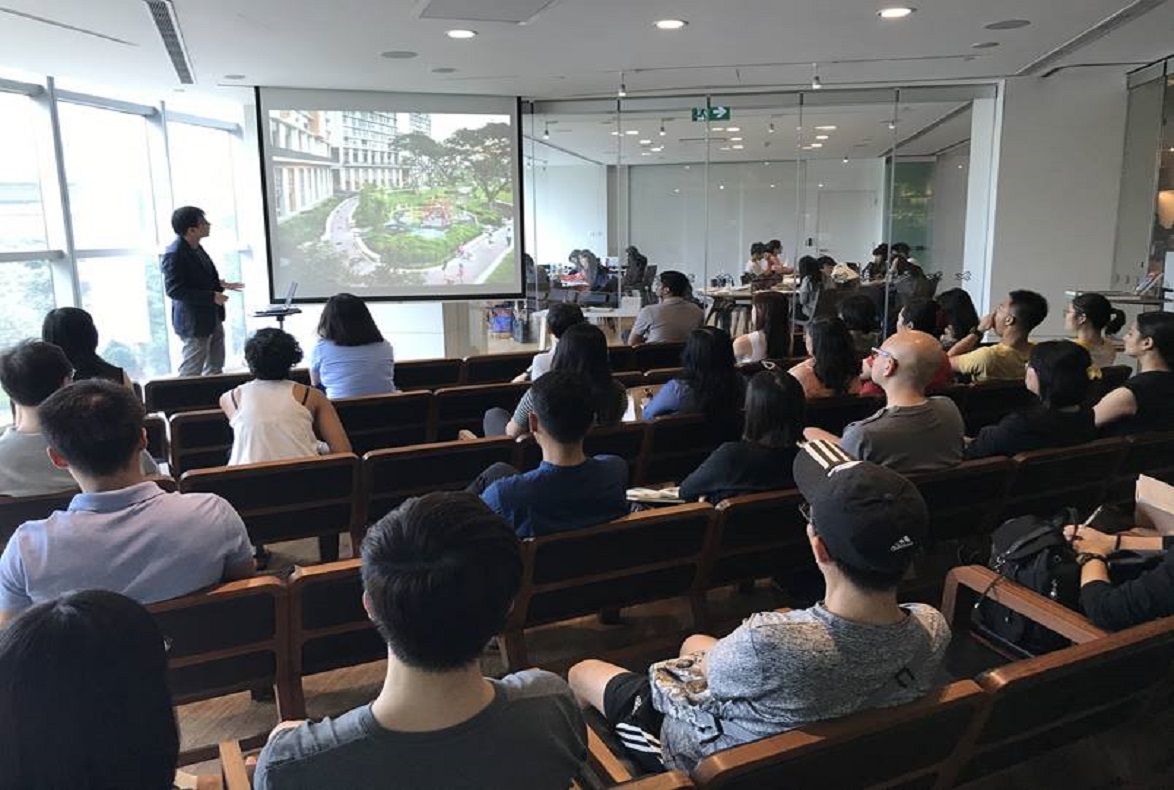
Last Saturday saw the first of two talks held at the library@orchard in conjunction with the PDA 2016 Exhibition, which will run at the library foyer in September. The PDA team invited Phua Hong Wei, representing WOHA Architects, to speak about the challenges and considerations of community-centred design with two Design of the Year projects as case studies – Enabling Village and SkyVille @ Dawson.
Hong Wei, who led the team behind Enabling Village, described how they worked closely and painstakingly with their client SG Enable to design an inclusive community space that embraces people of diverse abilities. He spoke of the attention paid to ease of navigation and orientation, the provision of a wide range of public amenities, and even the conservation of heritage trees and careful landscaping to encourage biodiversity – all with the objective of developing a truly integrated, holistic environment to promote participation, engagement, learning, bonding and healing.
Hongwei also spoke about WOHA’s other winning project, SkyVille @ Dawson, which featured similar concepts centred around designing for the community. For this project, WOHA created a new typology for public housing that fused the community spirit of kampong living with the present-day needs of Singapore’s high-rise, high-density urban environment. Such design features included the carefully incorporated skygardens for each 10-storey “stack” – WOHA having ascertained the 10 storeys was the maximum distance for faces to be recognizable at ground-level. The complex consists of four 10-storey stacks. This, Hong Wei explained, allowed the complex to accommodate a large number of families and yet retain that “old school feel” of parents being able to look down on their children playing in the gardens.
The talk was fully packed out, with all tickets on the event page snapped up within a week and more attendees arriving as walk-ins – attesting to the relevance and growing interest in fostering good conversations around community-centred design. Attendees also participated enthusiastically during the Question and Answer (Q&A) segment, bringing up thoughtful questions about cultivating sense of ownership in public spaces and creating buy-in for clients. PDA 2016 publications were given out to all who participated in the Q&A session.
The session ended with a short, open-ended quiz, in which attendees were invited to respond to what they felt were the most inspiring aspects of Hong Wei’s sharing. One attendee, a mother of young children, said that she was moved by SkyVille @ Dawson’s “10-storey” stack concept, saying that mothers appreciate being able to visually identify and quickly reach their children from their flats when their children are playing downstairs. Another attendee commended the connectors at Enabling Village that functioned both as thoroughfares for the users of the Village and a means of linking and embedding the Village as part of the larger neighbourhood. A third attendee lauded the flexible and welcoming design of Enabling Village’s amphitheatre, that makes it a viable, open space that is truly for all members of the community. The quiz respondents received Bynd Artisan (another PDA 2016 recipient) notebooks and/or a PDA 2016 publication.
Some attendees stayed back after the session to further engage with the PDA team, and more than 10 approached us to sign up for the next talk. This will feature Designer of the Year Raymond Woo, who will share the highlights of his illustrious four-decade-long career as one of Singapore’s veteran architects. Sign up here for event and registration details!
PDA 2016 x library@orchard Exhibition
